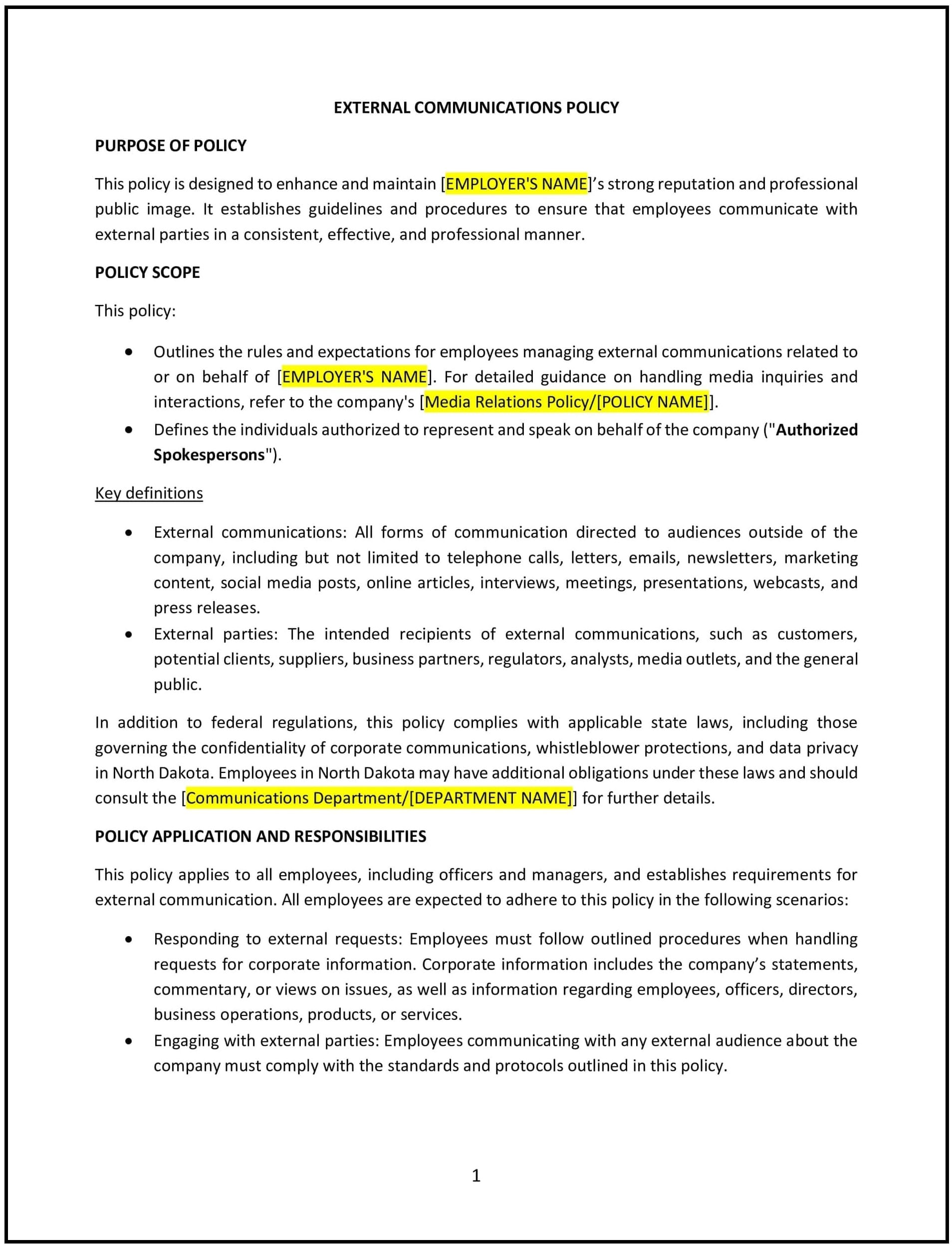External communications policy (North Dakota): Free template
Got contracts to review? While you're here for policies, let Cobrief make contract review effortless—start your free review now.

Customize this template for free
External communications policy (North Dakota)
This external communications policy is designed to help North Dakota businesses establish guidelines for handling public statements, media interactions, and social media engagement. The policy outlines who is authorized to speak on behalf of the company and how external communications should be managed.
By implementing this policy, businesses can protect their brand reputation, ensure message consistency, and reduce communication risks.
How to use this external communications policy (North Dakota)
- Define spokesperson roles: Identify who is authorized to speak to the media or issue public statements.
- Establish media interaction guidelines: Require employees to direct press inquiries to designated personnel.
- Address social media usage: Set rules for discussing company matters online.
- Require approval for public statements: Ensure external messaging aligns with company values and policies.
- Implement crisis communication plans: Develop procedures for handling media during emergencies.
- Provide training on communication protocols: Educate employees on responsible external communication.
- Review regularly: Update the policy based on communication trends and business needs.
Benefits of using this external communications policy (North Dakota)
Implementing this policy provides several advantages for North Dakota businesses:
- Protects brand reputation: Prevents unauthorized or misleading statements.
- Ensures message consistency: Aligns all public communications with company goals.
- Reduces legal risks: Prevents accidental disclosure of confidential information.
- Supports crisis management: Provides a framework for handling media inquiries during emergencies.
- Reflects North Dakota-specific considerations: Addresses communication challenges relevant to local industries.
Tips for using this external communications policy (North Dakota)
- Train spokespersons: Ensure designated representatives understand media protocols.
- Monitor social media activity: Establish guidelines for employee online behavior.
- Prepare crisis response plans: Develop communication strategies for potential PR issues.
- Encourage internal reporting: Require employees to inform management of media inquiries.
- Adjust as needed: Update policies based on business growth and communication trends.